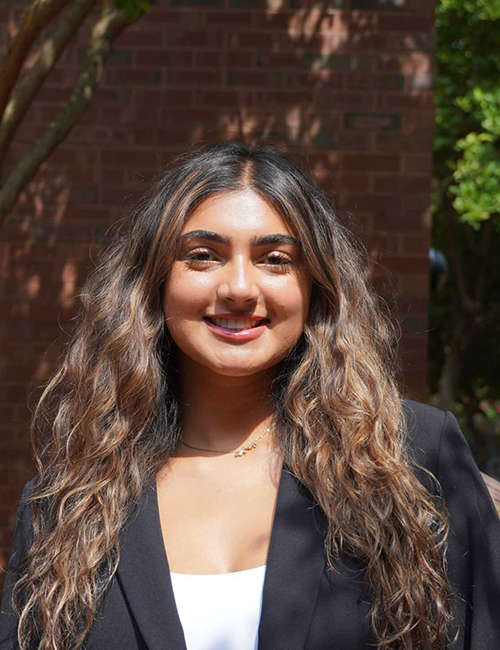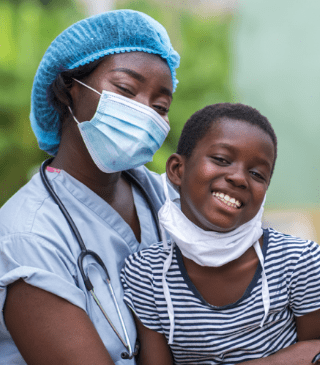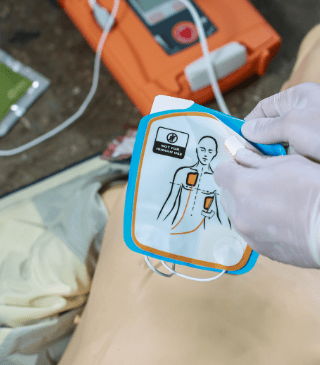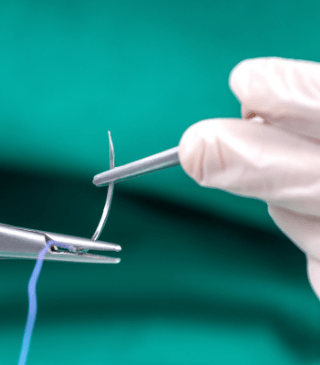MedNavyaDalal
My Public Health Training
My Diagnosis
In the Advanced Medical & Public Health Internship I had the privilege to collaborate with leading medical professionals from around the world and gain hands-on experience in patient examination, evaluation, and diagnosis.
Using telehealth technology, I connected with a clinic and maternity ward in Bauchi State, Nigeria, where I engaged with patients in real time. Under the supervision of a Nigerian doctor, I applied my diagnostic training to address the four leading causes of death in Nigeria: malaria, typhoid fever, nutritional anemia, and acute respiratory infections (ARI).
The patients I worked with were local residents of Bauchi State, many of whom could not normally afford medical care, earning $1.25 per day or less. In exchange for their participation, all their treatments were funded by Leadership Initiatives.
In 2024, Leadership Initiatives successfully funded the treatment of all patients involved in this program.
My Public Health
Campaign
I had the opportunity to learn about four of the most critical diseases in the developing world from esteemed medical professionals, including Dr. Aminu Yusuf and Dr. Aishatu Adamu, medical doctors and public health experts in Nigeria.
Under their guidance, I deepened my understanding of the signs and symptoms associated with various stages and severities of malaria, typhoid fever, acute respiratory infections (ARIs), and nutritional anemia. Additionally, I developed cultural competencies and a global perspective, enabling me to assess the structural and social determinants of health underlying these diseases.
Collaborating directly with development and public health experts, I helped create an impactful educational public health campaign tailored to the needs of underserved communities in Bauchi. The campaign focused on Malaria and promoting positive behavioral changes. Throughout the internship, I engaged in rigorous research and analysis to ensure the campaign’s effectiveness and relevance to the local population.
The process of developing the public health campaign was both challenging and rewarding. I conducted in-depth research on prevalent health concerns in the Gwallagan Mayaka and Kandahar communities, identifying key areas where intervention and awareness were essential for improving public health outcomes. Working with mentors and fellow interns, I formulated innovative strategies to engage the community and ensure the campaign’s messages resonated with the intended audience.
Throughout the internship, our ultimate goal was to empower individuals to make informed decisions about their health and well-being, fostering lasting improvements in community health.
As the internship concluded, I had the opportunity to showcase the culmination of my work and research. Presenting my research proposal about Malaria Diagnosis and Treatment to a panel of esteemed judges allowed me to demonstrate the depth of my understanding and commitment to the cause. The experience not only bolstered my presentation and communication skills but also reaffirmed my passion for public health and the potential positive impact such initiatives can have on communities around the world.
Clinical Skills Training
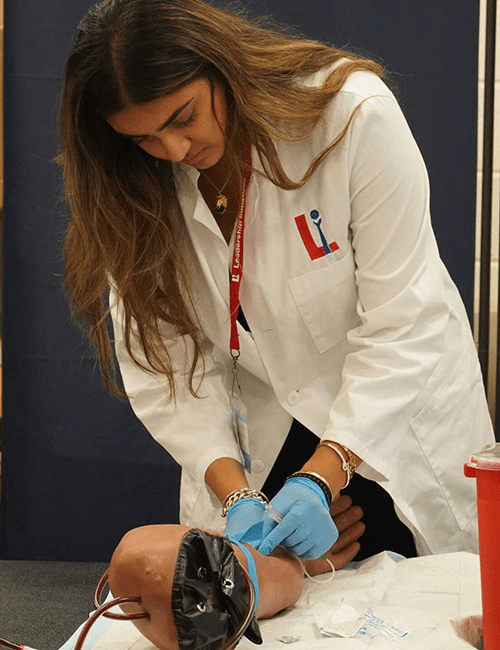
Phlebotomy
I trained in phlebotomy using a realistic arm simulator, practicing needle placement to draw blood from veins that mimic real vein-wall resistance.
With guidance from a medical facilitator, I refined my technique and improved my communication skills for interacting with future patients.
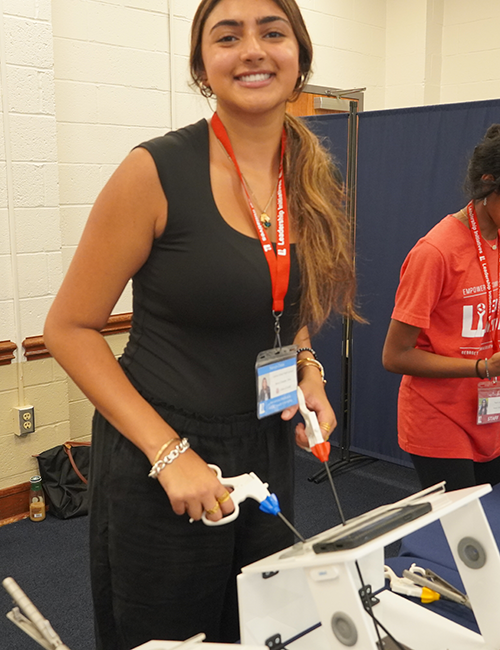
Laparoscopy
I studied laparoscopy, a minimally invasive procedure that allows physicians to examine and assess the abdomen or pelvis through small incisions and cameras.
After understanding the technology’s function, I had the unique opportunity to perform a simulated laparoscopy, applying my knowledge in a practical setting.
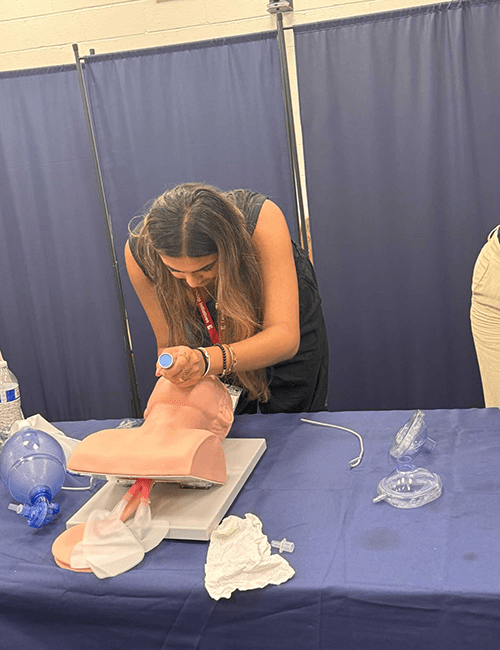
Intubation
Under the instruction of EMT professionals, I learned various emergency resuscitation techniques, including manual esophageal intubation and the use of a manual resuscitation airway mask.
The EMTs taught me the appropriate scenarios for different resuscitation and breathing assistance techniques, as well as the correct equipment to use.
Internship Highlights
- Experts & Mentors
- Diagnostic Training
- Health Data
- Suturing & Casting
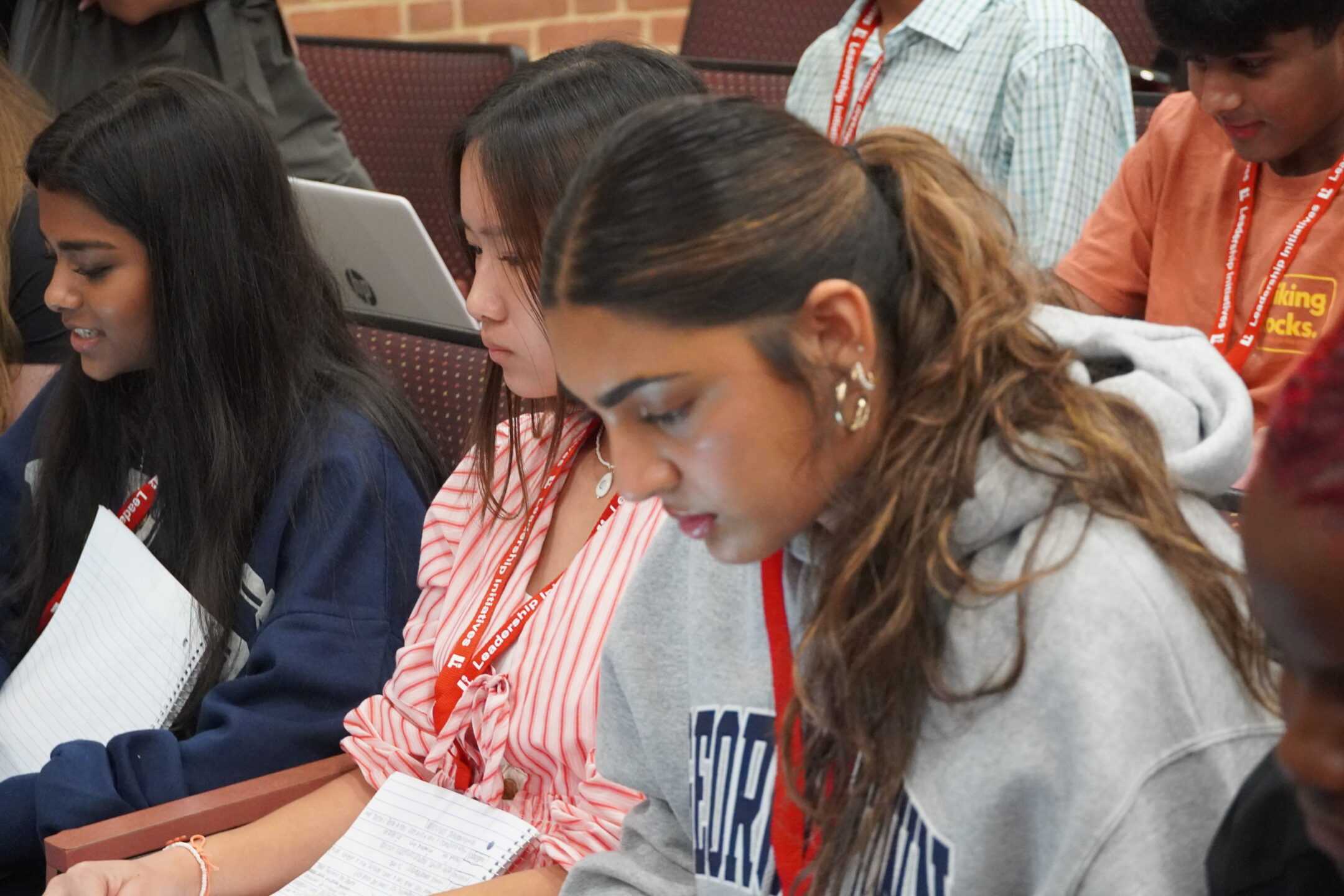
During this internship, I had the privilege of learning from top medical professionals across various fields, including surgery, emergency medicine, and medical research.
Among these experts were Dr. Oni, a senior program director at the Center for Global Health Practice and Impact at Georgetown University. Additionally, Dr. James Giordano, Chief of Georgetown University’s Neuroethics Studies Program, shared his valuable knowledge and passion for neuroscience.
These interactions gave me a comprehensive understanding of the responsibilities associated with each medical specialty and guidance on pursuing these careers.
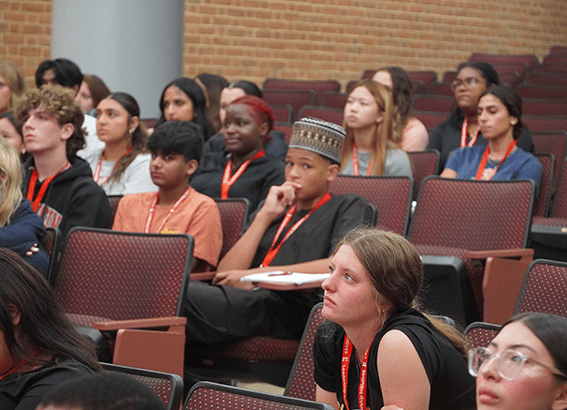
Under the mentorship of Dr. Aminu Yusuf and Dr. Aishatu Adamu, I developed essential skills in patient interviewing and disease investigation.
Throughout the program, I honed my abilities in collecting, interpreting, and critically analyzing patient data. Their guidance significantly enhanced my capacity to synthesize and evaluate information, which is crucial for the diagnostic process. These exercises also improved my communication skills for effective patient evaluation.
Additionally, their expertise provided me with a comprehensive understanding of current practices in Nigerian medicine. Meeting and learning from real patients gave me a deep appreciation for the lived experiences of individuals in Nigeria, influencing my perspective on implementing effective strategies in my campaign to combat infectious diseases.
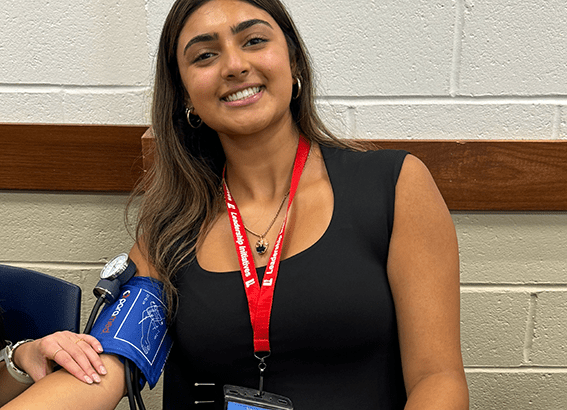
During the course of the internship, I had the invaluable opportunity to acquire fundamental clinical skills that have significantly enhanced my medical knowledge and expertise. Among the essential skills I learned were taking vital signs and conducting comprehensive neurological exams.
When it came to discussing vital signs, we delved into various methods of accurately measuring a patient’s pulse. Through hands-on practice and guidance from experienced mentors, I mastered each method, gaining the confidence to calculate heart rates in patients of all ages and conditions.
The ability to accurately take vital signs and perform neurological exams ensures that patients receive the necessary care promptly, enhancing their chances of successful treatment and recovery.
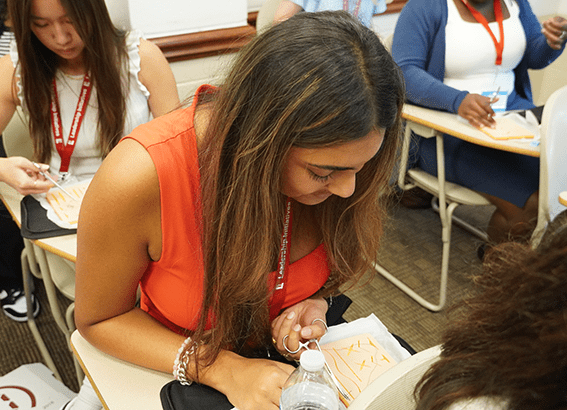
One of the internship’s most interactive activities involved learning and practicing multiple suturing techniques on a human skin model.
Under the expert guidance of medical professionals, I delved into the intricacies of suturing, mastering various techniques and understanding their applications in different medical scenarios. This experience provided invaluable insights into the essential tasks performed by doctors and nurses, highlighting the importance of suturing as a fundamental skill in patient care and wound management. As I practiced with dedication and received constructive feedback from mentors, my confidence grew in handling the delicate and precise aspects of medicine.
Additionally, the internship offered opportunities to explore other medical procedures, including the application of plaster casts. These activities broadened my understanding of the multifaceted nature of medicine and illuminated the diverse skill set required in healthcare settings.


